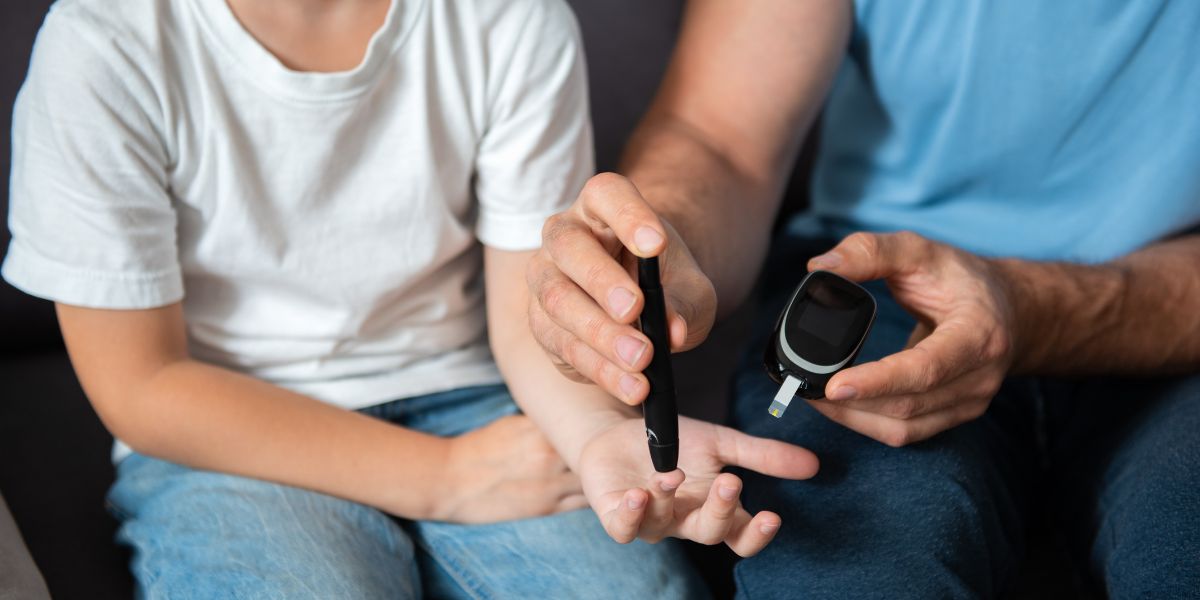Researchers have conducted a first-of-its-kind study on infants and young children with increased genetic risk of type 1 diabetes.
The study offers an exclusive insight into blood sugar regulation during early childhood and its association with the development of autoimmunity.
According to the authors, the long-term POInT (Primary Oral Insulin Trial) study, which was conducted across seven clinical sites in five countries, “investigated preprandial nonfasting and postprandial blood glucose concentrations and islet autoantibody development”.
- Tuberculosis vaccine ‘limits’ severe symptoms of COVID-19 in people with type 1 diabetes, study finds
- Free life-changing technology for people with type 1 diabetes
Within the framework of the Global Platform for the Prevention of Autoimmune Diabetes (GPPAD), the clinical primary prevention study looked to stop the formation of islet autoantibodies and, consequently, the development of type 1 diabetes. Due to a misdirected immune reaction, the beta cells of the pancreas which produce insulin are destroyed in people with type 1 diabetes.
It was assumed that metabolic changes take place near the beginning of clinical disease and that autoimmunity destroys the pancreatic beta cells. Nevertheless, no studies had closely investigated what takes place when autoimmunity begins.
The POInT study performed a frequent follow-up within the first year of life in 1,050 children with a high genetic risk of type 1 diabetes. This meant that the researchers could accurately compare any changes in blood glucose against the timing of islet autoantibody development.
Anette-Gabriele Ziegler, Director at the Helmholtz Munich Institute of Diabetes Research (IDF), explained: “Our results change our understanding of the development of type 1 diabetes. We show that metabolic changes occur in an earlier phase of the disease than previously anticipated.”
The POInT research team analysed the pre- and post-prandial blood sugar levels, along with islet autoantibodies, in the children who participated in the study.
“The findings indicate that metabolic shifts are present much earlier in the disease process than previously considered and that they may precede or be concurrent to the appearance of autoimmunity,” according to the study.
Results found that the blood sugar concentrations shortly after birth are not stable as they decrease within the first year of life before increasing around six months later.
Katharina Warncke, Chief Physician for Paediatric Endocrinology & Diabetology at the Department of Pediatrics and scientist at the IDF, said: “The dynamic changes in glucose metabolism in the first years of life were a surprise to us. They very likely reflect changes in the pancreatic islets and signal that we need to study glucose metabolism and the pancreas in early life more intensely.”
Researchers found that the after-meal blood sugar levels of children who developed autoimmunity were already higher two months before the formation of islet antibodies when compared to children who did not develop autoimmunity. This difference continued to increase in pre-meal values after the autoimmunity.
- Greenlight for research trial that could help people with type 1 diabetes become insulin-independent
- Giant anteater diagnosed with type 1 diabetes at UK zoo
Therefore, the study concluded that blood sugar levels of young children are dynamic and mirror the concentration peak of islet autoantibodies, which indicates a phase of activity and susceptibility of islet cells.
Warncke said: “The change in post-meal blood sugar levels shortly before the initial detection of autoantibodies points to the likelihood that there is an event impairing the function of the islets preceding and contributing to the autoimmune reaction. As glucose values further increase after seroconversion, the impairment or damage seems to be sustained leading to further glucose instability.”
“The observed changes in blood sugar levels in relation to autoantibody formation are exciting. Now we know that the start of the disease process is likely to be acting at the pancreatic islets and we can focus our research to find the cause of this chronic illness,” added Ezio Bonifacio, Professor at the Center for Regenerative Therapies Dresden at the Technische Universität Dresden.
Ziegler summarised: “Changes in glucose levels could thus serve as an indicator of islet cell dysfunction and a potential onset of autoimmunity against beta cells in the future.”
The researchers are aware that further research into glucose metabolism and additional biomarkers in early childhood is required. They ultimately aim to reduce the number of new type 1 diabetes cases.
The study was published in the Journal of Clinical Investigation.







